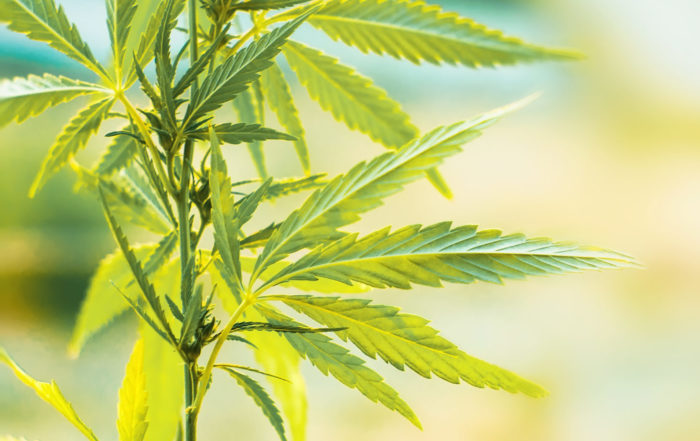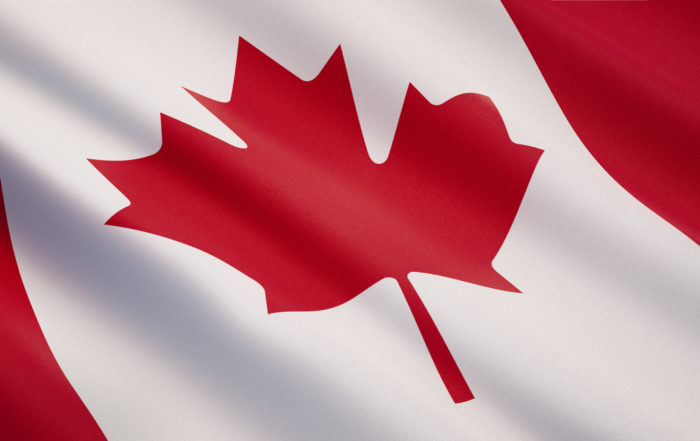
Will 2021 Be a Pivotal Year for the CBD Industry? A Look at the Regulatory Landscape and Potential for Change
By Elizabeth Oestreich and Madeleine Giaquinto
On December 22, 2020, the Food and Drug Administration (FDA or agency) issued five warning letters to companies marketing products containing cannabidiol (CBD),[1] which followed another batch of warning letters released in November 2020 that specifically addressed CBD products claiming to treat, mitigate, or cure the coronavirus disease (COVID-19). The December 2020 enforcement push targeted companies making a variety of drug claims, including COVID-19-related medical claims. Although it is expected that the agency will continue to enforce against makers of all types of products with unapproved claims related to COVID-19, FDA’s December 2020 actions indicate the seriousness with which it is approaching enforcement in the exploding CBD marketplace.
Can the CBD industry expect to see similar FDA enforcement efforts in 2021, beyond circumstances of the pandemic? While the agency has been consistent in its approach to enforcement in the CBD space recently, several factors could add to or change these activities in the upcoming year. Below are five key questions that could impact the CBD industry in 2021.
1. Will an Enforcement Discretion Guidance be Issued?
An FDA enforcement discretion draft guidance was delivered to the Office of Management and Budget (OMB) in July 2020.[2] It was not issued during the Trump Administration, as many had hoped, and it has since been caught in the Biden Administration’s regulatory freeze.[3] The Biden Administration will review the enforcement policy and revise it as they see fit before its likely resubmission. Consequently, it is unclear exactly whether or when an enforcement policy will be put into effect (or at least reemerge on the public stage). To date, the contents of the draft guidance have not been made public, and therefore haven’t yet been relied upon by the industry, making it easier for the Biden Administration to change the unissued enforcement policy. Additionally, congressional pressure on the issue has been high, so if an enforcement discretion policy is released, it is likely that it will have been heavily vetted prior to its clearance by the new administration. Draft guidance documents are much easier to revise than regulations, so it is possible that a revised version could be completed in a matter of months.
FDA’s exercise of enforcement discretion would potentially allow certain CBD products to stay on the market if they are derived from hemp and otherwise meet the definitions outlined in the Agriculture Improvement Act of 2018 (2018 Farm Bill). These products are already in wide circulation, but an enforcement discretion policy would offer a benchmark for market compliance and predictability.
It may be some time before the industry sees an enforcement policy for CBD products, but regulation of this popular product category is a priority for the agency. Nevertheless, de facto enforcement discretion is essentially in place and the market is booming for low-risk products.
2. Will FDA’s Enforcement Approach Change in 2021?
FDA’s enforcement strategy could change in the upcoming year, but the likelihood of a significant shift is low absent the release of an enforcement policy or congressional action. The Biden Administration’s plans for this product category will become clearer in the upcoming months. Until then, FDA will likely continue its enforcement against products that make egregious drug claims and/or pose direct or indirect harm to consumers or patients.
Products making egregious drug claims and marketed to vulnerable populations, or products that pair disease claims with products that require nasal, ophthalmic, or inhalation administration, are acutely susceptible to enforcement. CBD products marketed to children are a red flag for the agency, and it has called out companies, such as Rooted Apothecary LLC, for marketing such products in the past. However, Rooted Apothecary’s products also made drug claims for autism, anxiety, and cancer,[4] which, in an October 2019 warning letter, seemed to narrowly overshadow FDA’s concerns for the vulnerable child population.
Amy Abernethy, M.D., Ph.D., Principal Deputy Commissioner at FDA, issued a statement that accompanied the December 2020 warning letters, signaling the likelihood of consistent and continued focus on CBD during the Biden Administration. Abernathy, who also leads the agency’s taskforce on CBD, wrote:
“We remain focused on exploring potential pathways for CBD products to be lawfully marketed while also educating the public about these outstanding questions of CBD’s safety. Meanwhile, we will continue to monitor and take action, as needed, against companies that unlawfully market their products—prioritizing those that pose the greatest risk of harm to the public.”[5]
Protecting the public from products that pose the greatest risk of harm has long been the agency’s enforcement philosophy. Based on warning letters issued thus far, products that pose the greatest risk to the public are those that bear egregious claims for treatment, cure, or mitigation of a disease. Until the agency learns more about CBD dosing, impacts on sex and gender, drug interaction, and accumulation, FDA will remain focused on protecting the public from unsubstantiated claims.
In the final days of the Trump Administration, FDA Commissioner Stephen Hahn, M.D., and Abernethy issued a joint statement, “Better Data for a Better Understanding of the Use and Safety Profile of Cannabidiol (CBD) Products,” highlighting information gaps and a number of concerns surrounding CBD products.[6] In this statement, Hahn and Abernethy discuss ongoing efforts in product sampling and testing. With safety in mind, the agency’s testing efforts have uncovered widespread variation in content and label claims. From the limited data available following the first phase of product testing and sample analysis, the agency found that “fewer than half of the tested products which presented label claims contained CBD at concentrations within 20% of their claimed amount.”[7] Thus, testing and sampling of CBD products will continue to be a key investigational tool for FDA while it seeks to better understand the safety-related risks of these products.
3. Will FTC Enforcement Efforts Increase Federal Scrutiny on the CBD Industry?
In addition to December 2020 warning letters issued by FDA, another end of the year surprise for the CBD industry came with the Federal Trade Commission’s (FTC) law enforcement crackdown on CBD products making deceptive claims. “CBDeceit” is the code name for FTC’s ongoing effort to clear the market of products bearing false or misleading labeling claims, specifically those associated with disease treatment.[8] FTC announced corresponding settlements against six companies for marketing CBD products with unsupported health claims, including the claim that a product can “replace the need for prescription painkiller like OxyContin”[9] or that another “treats or prevents cancer.”[10] Per the terms of the settlements, each company is required to stop making unsupported health claims and are barred from making similar claims in the future. Several of the companies will also be required to pay monetary judgments to FTC, with fines ranging from $0 to $85,000. Perhaps FTC’s monetary fines will assist in deterring future claims of this kind.
In the past, FDA and FTC have issued joint warning letters to CBD companies marketing products through unsupported claims, specifically drug claims that included the promise to cure, mitigate, or treat a disease. Products involved in the most recent string of enforcement actions by both FDA and FTC are similar in that they all make varying unsubstantiated claims.
4. Will Congress Pass CBD Legislation?
Several bills have been introduced to address all forms of cannabis consumption in the United States. Most recently, the “Hemp and Hemp-Derived CBD Consumer Protection and Market Stabilization Act of 2021” was introduced by Rep. Kurt Schrader (D-OR) and Rep. Morgan Griffith (R-VA). This bill was initially introduced in the 116th Congress, but was never brought to a vote. [11] The Federal Food, Drug, and Cosmetic Act (FD&C Act), as amended by the Dietary Supplement Health and Education Act of 1994 (DSHEA), prohibits CBD as a dietary ingredient in a dietary supplement because CBD is an active pharmaceutical ingredient in an FDA-approved product and clinical trials were initiated before CBD was marketed in food.[12] The CBD industry has long waited for an exception to this clause—known as the exclusion clause—to pave a regulatory pathway for CBD products to be dietary supplements.
Since the passage of the 2018 Farm Bill, FDA and Congress have grappled with the regulation of this product category—specifically, who should act to create a regulatory pathway. FDA can create an exception to the exclusion clause by promulgating regulations through the notice and comment process, although it has not yet done so. Congress can propose to amend the FD&C Act to establish a clear pathway for this product category, which it did through the “Hemp and Hemp-Derived CBD Consumer Protection and Market Stabilization Act of 2021.”[13] This bill proposes to amend the FD&C Act to make hemp and hemp-derived CBD lawful for use as a dietary ingredient. Since notice and comment rulemaking is arduous and can take years to complete, legislation would certainly be the faster path forward for CBD products marketed as dietary supplements. In the meantime, FDA is likely preparing for the potential exception that could be provided by the recently proposed bill, and the onslaught of dietary ingredient notification submissions that will likely follow.
5. Will FDA get Answers to Their Questions?
Although slow moving, the creation of a CBD regulatory framework is inevitable as CBD finds its way into more and more FDA-regulated products. Given FDA’s admitted lack of understanding of CBD and other cannabis-derived substances, the path forward is based on FDA’s search for additional answers that will help clarify its regulatory stance. Congressional action aside, FDA will not act until they understand the full ramifications of their actions. If they set a dosage limit in an enforcement guidance, they will only do so if they understand the impact of that dose on the user, which requires knowledge of how CBD affects men, women, children, cancer patients, those using multiple forms of CBD, and those coupling CBD with approved pharmaceuticals. The agency is also seeking to understand the risks that accompany long-term use of CBD products, and any adverse reactions that may be associated with this use as well.
FDA has repeatedly stated that they have a limited understanding of the safety profile of CBD and other cannabis compounds, including potential safety risks for people and animals. Hahn and Abernethy’s January 2021 statement, on generating better CBD data to understand associated risks, acknowledges that FDA is “uniquely situated to contribute its expertise in evaluating data from different sources to inform regulatory decision-making.”[14] To that end, FDA is evaluating data to identify the presence or absence of sex and gender response differences in use of CBD and other cannabinoids, and is working to finalize expectations for clinical research as well.
In the meantime, wise companies should be focused on the future. Robust data and clear answers to FDA’s questions will not solve all of the problems facing the CBD industry. Even with clear regulatory guidelines, manufacturers will need a sophisticated approach to FDA communication. Manufacturers should endeavor to prioritize quality and ensure product manufacturing is consistent and in compliance with product labeling. Manufacturers should brace for forthcoming regulation and begin manufacturing with current good manufacturing practices. Manufacturers should also ensure compliant product labeling by testing products for quality and consistency. Lastly, manufacturers should be vigilant of other factors that may impact the quality of their products, including sourcing and supply chain-related implications.
Conclusion
While the federal government is focused primarily on responding to the pandemic at the moment, and rightfully so, recent FDA, FTC, and congressional activity indicates that a more definitive CBD regulatory framework may be on the horizon, although exact timing is far less certain. This is especially true as state and local governments, industry stakeholders, and Congress seem more and more poised to tackle cannabis policy reform. Additionally, although not yet viewed as a priority of the Biden Administration, Vice President Harris has added her voice to the growing support of cannabis legalization and has noted the need for additional research on cannabis-derived substances.[15]
[1] FDA Warns Companies Illegally Selling CBD Products, FDA News Release, December 22, 2020, available at https://www.fda.gov/news-events/press-announcements/fda-warns-companies-illegally-selling-cbd-products.
[2] FDA Sends CBD Enforcement Policy to OMB, July 22, 2020, available at https://www.jdsupra.com/legalnews/fda-sends-cbd-enforcement-policy-to-omb-22125/.
[3] Regulatory Freeze Pending Review, White House Briefing Room, January 20, 2021, available at https://www.whitehouse.gov/briefing-room/presidential-actions/2021/01/20/regulatory-freeze-pending-review/.
[4] FDA Warning Letter, Rooted Apothecary LLC, October 10, 2019, available at https://www.fda.gov/inspections-compliance-enforcement-and-criminal-investigations/warning-letters/rooted-apothecary-llc-585312-10102019.
[5] FDA Warns Companies Illegally Selling CBD Products, FDA News Release, December 2020, available at https://www.fda.gov/news-events/press-announcements/fda-warns-companies-illegally-selling-cbd-products#:~:text=Today%2C%20the%20U.S.%20Food%20and,Cosmetic%20Act%20(FD%26C%20Act).
[6] Better Data for a Better Understanding of the Use and Safety Profile of Cannabidiol (CBD), FDA Voices, January 8, 2021, available at https://www.fda.gov/news-events/fda-voices/better-data-better-understanding-use-and-safety-profile-cannabidiol-cbd-products.
[7] Id.
[8] One Thing Marketers of CBD Products Need to Know Right Now, FTC Business Blog, December 17, 2020, available at https://www.ftc.gov/news-events/blogs/business-blog/2020/12/one-thing-marketers-cbd-products-need-know-right-now.
[9] Epichouse LLC (First Class Herbalist CBD), FTC Complaint, available at https://www.ftc.gov/system/files/documents/cases/2023094epichousecomplaint.pdf.
[10] CBD Meds, Inc., FTC Complaint, available at https://www.ftc.gov/system/files/documents/cases/202_3080_cbd_meds_complaint.pdf.
[11] H.R. 8179, Hemp and Hemp-Derived CBD Consumer Protection and Market Stabilization Act of 2020, available at https://www.congress.gov/bill/116th-congress/house-bill/8179?r=1&s=1.
[12] FD&C Act 201(ff)(3(B)(i) and (ii). This section is referred to as the “exclusion clause.”
[13] H.R. 841, To make hemp, cannabidiol derived from hemp, and any other ingredient derived from hemp lawful for use under the Federal Food, Drug, and Cosmetic Act as a dietary ingredient in a dietary supplement, and for other purposes, available at https://www.congress.gov/bill/117th-congress/house-bill/841.
[14] Better Data for a Better Understanding of the Use and Safety Profile of Cannabidiol (CBD) Products, supra note 6.
[15] Kamala Harris’ Controversial Cannabis History is Making Waves—Here’s Where She Stands Now, Forbes, August 18, 2020, available at https://www.forbes.com/sites/emilyearlenbaugh/2020/08/18/kamala-harris-controversial-cannabis-history-is-making-wavesheres-where-she-stands-now/?sh=6e23f382232b.
Update Magazine
Spring 2021

 ELIZABETH (LIZ) OESTREICH is Vice President, Regulatory Compliance at Greenleaf Health Inc. Liz provides strategic regulatory guidance to clients in the cannabis, tobacco, pharmaceutical, and medical device industries with specific focus on FDA compliance.
ELIZABETH (LIZ) OESTREICH is Vice President, Regulatory Compliance at Greenleaf Health Inc. Liz provides strategic regulatory guidance to clients in the cannabis, tobacco, pharmaceutical, and medical device industries with specific focus on FDA compliance. MADELEINE GIAQUINTO is Manager of Regulatory Affairs at Greenleaf Health, Inc. She provides clients with timely analysis of FDA regulations, policies, and guidance documents and strategic advice on FDA engagement regarding compliance-focused issues and good practice standards for FDA-regulated products.
MADELEINE GIAQUINTO is Manager of Regulatory Affairs at Greenleaf Health, Inc. She provides clients with timely analysis of FDA regulations, policies, and guidance documents and strategic advice on FDA engagement regarding compliance-focused issues and good practice standards for FDA-regulated products.




